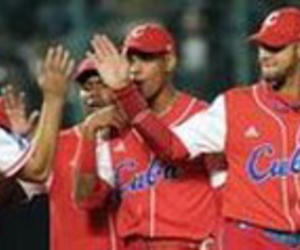Cuba’s plan to shop talent may not help MLB
- Submitted by: manso
- Sports
- 12 / 28 / 2010

By Jeff Passan, Yahoo! Sports.Pedro Luis Lazo retired from baseball the day after Christmas. A horse-drawn carriage took him into the stadium in Pinar Del Rio where he and Jose Contreras(notes) once formed the most fearsome pitching duo in the history of the Cuban league, Serie Nacional. Nearly a decade ago, Contreras fled Cuba for the riches of Major League Baseball. Lazo stayed.
For the last 21 years, Lazo pitched for a pittance. Outside of the tiny island shut off from the United States, he is barely known. Whatever Lazo could’ve been in MLB – monster closer or inning-gobbling starter in all likelihood, and outsized, magnanimous personality for certain – his nationalist and loyalist sensibilities handcuffed him to Cuba.
Over the last two years, major league teams have spent more than $75 million on Cuban defectors for whom a life with new cars and sparkling jewelry and freedom was too much to ignore. Nearly half the sum went to Aroldis Chapman(notes), who in his first season with the Cincinnati Reds threw the fastest recorded pitch in history and showcased the highest-end talent available in Cuba.
Chapman’s defection, along with that of shortstops Jose Iglesias (Boston signed him for $8.2 million) and Adeiny Hechavarria (Toronto signed him for $10 million), has compelled Cuba to reconsider its policy on restricting players from plying their trade professionally elsewhere. The Baseball Federation of Cuba, headed by Fidel Castro’s son Tony, is discussing a plan that would allow baseball players to leave the country in exchange for a proportion of their salary going to Cuba, according to two sources familiar with the proposal.
Ideally, one source said, Cuba would send players to the major leagues and circumvent the spate of defections that have embarrassed the country. Such a plan, the source said, is currently a non-starter. Though MLB would welcome Cuban players, the arrangement would in effect pay the Cuban government for players, a violation of the United States’ 50-year-long embargo on Cuba. That is unlikely to thaw for baseball. While the U.S. government has allowed Cuba to play in both World Baseball Classics, Cuban players were the only ones not given the prize money handed out by the International Baseball Federation.
For now, the idea is for Cubans to go to Japan, South Korea, Mexico or Europe, like doctors and entertainers who make money elsewhere, then return home eventually. Because of working agreements with the first three countries, MLB would not take defectors from them. And baseball in Europe is played at a significantly lower quality and salary, likely keeping the top-end Cuban talent from playing in the Netherlands or Italy.
Accordingly, the defections probably will continue unabated. In November, Yasiel Balaguer, a 17-year-old on the Cuban Junior National team, defected to Nicaragua. Whether Balaguer is anything more than a marginal talent seems not to matter, as MLB teams’ intrigue with Cuban players continues despite the deep risk involved with their signings. Eleven Cuban players made major league debuts in the last three seasons and 35 have done so since 1995.
For every Chapman and Iglesias – he is expected to take over as the Red Sox’s full-time shortstop by 2012 – there are Noel Arguelles(notes) and Dayan Viciedo(notes). Kansas City paid $6.9 million for Arguelles last December, and he’s looking like Kei Igawa(notes) to Chapman’s Daisuke Matsuzaka(notes). Arguelles still hasn’t thrown a professional pitch and underwent shoulder surgery in August. Viciedo’s two main problems – plate discipline and weight – haven’t resolved themselves, and the White Sox only hope their $10 million investment in the third baseman isn’t a complete wash.
Even if they’re busts, there have been enough Cuban successes in the major leagues to feed the defecting marketplace. The Angels’ Kendry Morales(notes) is among the best hitters and the White Sox’ Alexei Ramirez(notes) is among the best-fielding shortstops in the American League. Shortstop Yunel Escobar(notes) is poised for a breakout season with Toronto, and pitcher Yunesky Maya(notes) joins Washington’s rotation this season, and outfielder/first baseman Leslie Anderson could crack Tampa Bay’s opening day roster.
Despite the dozens of players who have left over the past two years, Cuba remains No. 1 in IBAF rankings. Major league teams still covet Frederich Cepeda and Yulieski Gourriel and Alfredo Despaigne and even Lazo, who, at 37 and sporting a paunch, can fire fastballs and forkballs like his old teammate in Pinar Del Rio.
Contreras signed a two-year, $5.5 million deal to remain with Philadelphia this offseason. Already he has made $62.5 million in his eight major league seasons. Depending on the report, players in Cuba are paid anywhere from a couple hundred dollars to $2,000 or $3,000 per season. Over his career, Contreras has made $3,396.55 per pitch.
Source: http://sports.yahoo.com/mlb/news?slug=jp-cubanplayersmobility122710
Comments